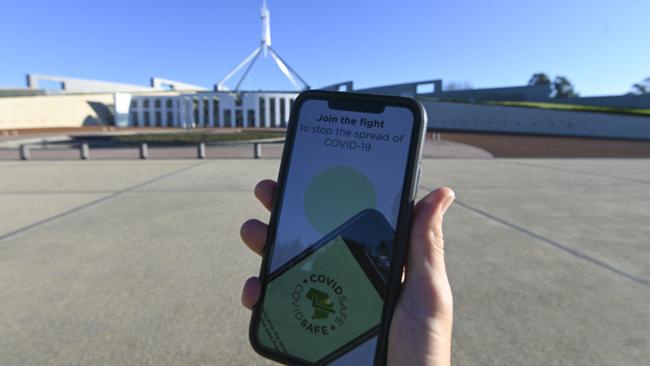Ensuring a safe workplace? None of your business
The Morrison government’s authoritarian shift continues with COVIDSafe penalties.

This is the illogical approach our federal government is taking with its confusing and draconian new rules around the COVIDSafe tracing app.
Don’t take this issue lightly; everyone must wade through the detail and avoid any breaches because the penalties are excessive.
The Privacy Amendment (Public Health Contact Information) Bill 2020 clarifies the offences that can be applied to anyone who might require a person to use the app.
The bill typifies the Morrison government’s authoritarian bent. It is confusing and contrary.
An action is either allowed or prohibited, depending on the type of premises a citizen is in when they take the action, as well as the type of relationship the citizen has with the person they take the action against.
The bill is unfair to commercial operators. The government has seen fit to place extraordinary restrictions on business, which is understandable in a pandemic. However, in the same pandemic, the government prohibits business from placing restrictions or requirements on employees and customers.
In a personal context, if a person doesn’t have the app, you may be able to deny them entry to your home. However, this depends on the nature of your relationship.
“A person will not be liable for this offence if they require a person to use COVIDSafe before entering their private residence, reflecting the normal expectation that a person is generally free to deny another person access to their home for any reason,” Attorney-General Christian Porter said this week.
So your home is your castle when it comes to family and friends. Your home is not your castle, though, if the person without the app is a flatmate or if a commercial relationship applies.
To clarify, I am told by the government that you are not allowed to insist a cleaning lady, for instance, must download the app, but you can deny her entry to your home if she doesn’t. Clear as mud?
Porter says “this exemption is limited — it would not apply to other situations covered by the offence involving a commercial relationship, such as a landlord-tenant relationship, a share house relationship or an employment relationship”.
When it comes to a business context, the government has decided that a business owner has fewer rights than a residential occupier.
If a person owns a business, the government thinks the business is not the person’s castle, because they are not free to deny another person access for any reason.
A person may own the building, may own the business, may have built it from nothing, and may have more invested in it than their home but, nevertheless, they are not allowed to insist their staff members have the app, or deny entry to someone without it.
Anyone who gets these rules wrong, in a personal or business context, can be fined $63,000 and sent to prison for five years. Imagine being sent to prison for telling someone they must download an app.
I guess this is the sort of nonsense we must expect when there are too many ex-lawyers in the political ranks.
This issue will prove to be of particular interest to our hospitality sector. As the industry attempts to emerge from an enforced shutdown, it will face extraordinary challenges.
During the period of closure, hospitality businesses incur fixed costs with zero revenue. Payment can be delayed but not denied; loans and losses won’t disappear once doors reopen, and many operators are fast approaching a debt cliff.
Your pre-pandemic favourite haunts cannot be taken for granted.
According to the Australian Hotels Association, which represents more than 5000 hotels, pubs, bars and taverns, the typical pub, before interest, wages and rent, has fixed costs of about $32,000 a month.
This includes $7000 a month on insurance, $10,000 on land tax and $3000 on electricity network charges, which apply even when all the power is turned off.
Spare a thought here for the venue owners.
They’ve been shut down and now, depending on which state they are in, they are being allowed to open with restrictions that may or may not make it viable.
On the one hand, they have their customers, who want service in a safe place; on the other, they have the layers of government, with all their demands, and somehow they need to earn enough to keep going and pay back all the debts incurred while shut down.
Finally, they must manage all this with the threat of public humiliation and closure should a staff member or patron come in while infected and cause a cluster to form.
And in all this they are not allowed, with the threat of prison, to make their premises as safe as possible by insisting that all staff and patrons have the app.
You may think this extreme, but a person who owns a business should be allowed to decide who they employ and who they serve.
Further, they should be allowed to make their premises more appealing by declaring it a safe place, to the extent that safety is possible.



A person’s home is their castle, but their business is not. Your family and friends can be bossed around, but an employee or a flatmate cannot.